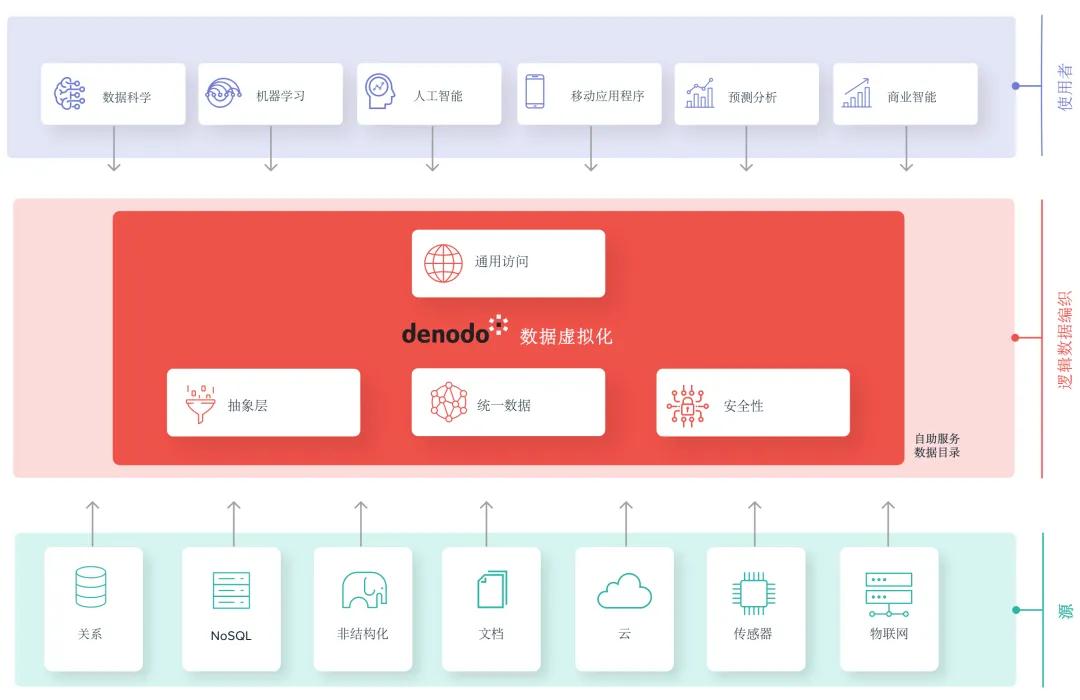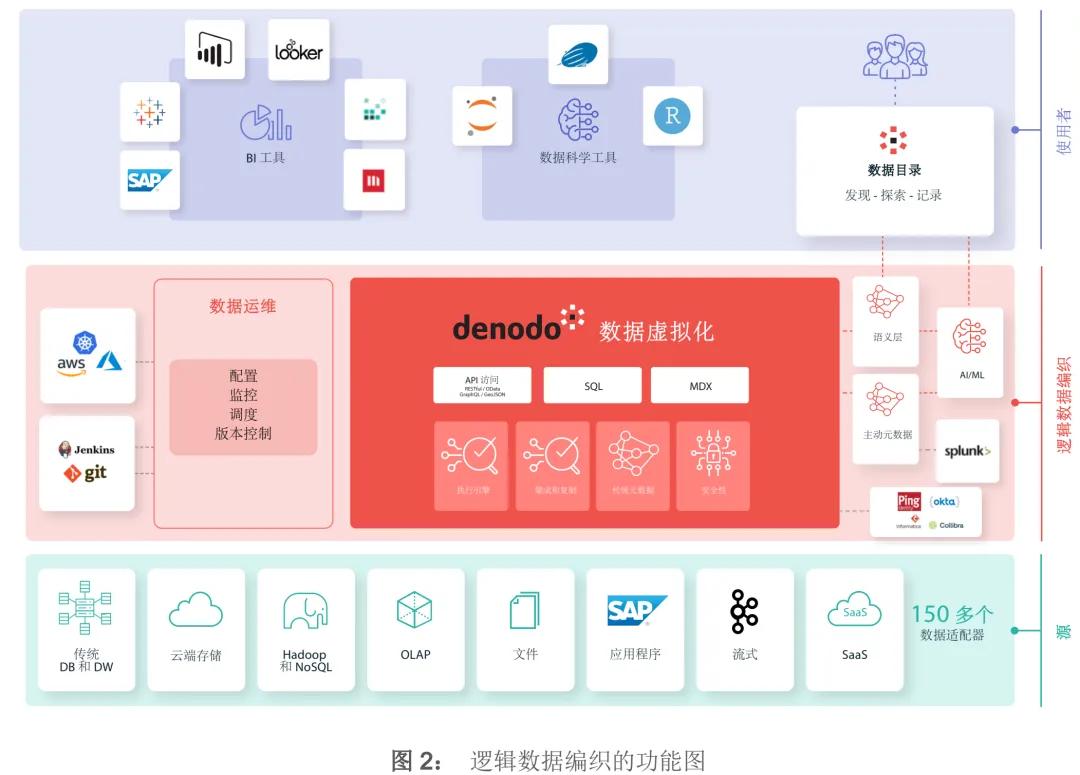Father of Data Fabric: Embracing Fearless Data for Triumph in the Agentic AI Era
![]() 11/26 2025
11/26 2025
![]() 635
635
In mid-November, as Beijing ushered in the early whispers of winter, the private jet carrying King Felipe VI of Spain touched down in the city, heralding the start of a diplomatic event that would bridge the Eurasian continent.
This visit unquestionably marks a significant milestone in the political and economic exchanges between the two nations. Among the vast economic and trade delegation from Spain, one business leader stands out prominently. He is not merely a representative of Spain's technological prowess but also possesses the 'logical key' to unlocking the data treasures of the AI era. He is Angel Viña, the founder and CEO of Denodo, who has been hailed by the industry as the 'Father of Data Fabric.'

King Felipe VI of Spain with Denodo Founder and CEO Angel Viña
Angel Viña's visit to China coincides with a pivotal phase in China's digital economy transition, moving from 'digitization' to 'digital intelligence.' With the comprehensive deployment of China's 'AI+ Action Plan,' AI large models and AI agents are swiftly integrating into business scenarios. However, data—the lifeblood of the AI era—poses new challenges due to its explosive growth, impeding the progress of enterprise digital intelligence.
As Angel Viña aptly put it, 'Future data management cannot rely solely on solutions like data lakes. Enterprises require a more flexible and efficient data 'pipeline': data fabric. Denodo is committed to further deepening its roots (cultivating deeply) in the Chinese market, bringing advanced data fabric concepts, technologies, and solutions to collaborate with Chinese clients for mutual prosperity.'
Agentic AI Demands Data Readiness
AI large models are emerging as a pivotal force driving intelligent transformation across industries. However, during the deployment and application of these models, enterprises face increasingly complex and daunting data challenges.
'As enterprises and organizations endeavor to deploy and apply generative AI and agentic AI, they will discover that the greatest obstacle lies in data readiness, not model performance,' stated Angel Viña.
Specifically, after experiencing technological advancements such as cloud computing and big data, most enterprises now confront complex data environments characterized by decentralization and fragmentation. AI technologies impose vastly different demands on data volume, data pipelines, and processing efficiency, further complicating the enterprise data landscape.

While solutions such as data lakes, lakehouse integration, and NoSQL exist in the market to address the increasingly intricate data environments of enterprises by aggregating data and streamlining data pipelines for AI readiness, they fail to fundamentally resolve the core challenges of data management. This is due to the inherent 'gravity effect' of data, which renders data movement costly. As data volumes continue to surge, the escalating costs of data movement make the shortcomings of these solutions increasingly evident.
More critically, relying solely on traditional data management fails to address the issue of data timeliness. When AI large models cannot access real-time or complete data, the insights they generate are often inconsistent or outdated. Especially with the proliferation of AI agents operating autonomously in business scenarios, a lack of clear business semantics or unified definitions at the data level makes it difficult for AI agents to accurately reason or explain their decisions.
Angel Viña directly asserted, 'Without trust, the autonomy of AI agents cannot exist.'
Therefore, as the Agentic AI era accelerates and enterprises ramp up their investment and application of AI technologies, effective data management becomes a 'must-answer question' in their digital intelligence transformation strategies. Data fabric ensures that AI operates within a trustworthy and well-governed data environment, enabling AI agents to utilize accurate, up-to-date, and well-governed data, thereby fully realizing the value of AI investments.
Data Fabric: The Bedrock of Enterprise Digital Intelligence Transformation
'The goal is not to move data but to connect it,' emphasized Angel Viña, highlighting the core philosophy of data fabric.
Denodo stands as the sole company globally capable of achieving comprehensive data management functions without replicating or moving data. As a next-generation European tech unicorn, Denodo possesses deep expertise in data management and is a global leader in the data fabric space. Its founder, Angel Viña, is renowned in the industry for his profound insights and forward-thinking perspectives.
Gartner recognizes data fabric as one of the top ten strategic technology trends. Data fabric is a data architecture pattern that provides and automates information about the design, integration, and deployment of data objects, irrespective of the deployment platform or architectural approach. Its core purpose is to enable more agile and seamless data access and integration while automating these processes in application scenarios.

Data Fabric System Architecture Diagram
In simpler terms, data fabric establishes a logical layer within the existing data environment to mask its complexity. Enterprises can directly access various data sources through metadata in the logical abstraction layer without moving or replicating data. Data fabric serves as the key to constructing a logical, unified, and trustworthy data foundation for enterprises, which is crucial for the successful application of generative AI and AI agents.
Data fabric employs a Logical Data Architecture to directly connect and deliver real-time, governed data from distributed source systems, enabling AI models and agents to access accurate and up-to-date information while avoiding costly data replication. Secondly, through data fabric, enterprises can efficiently deliver real-time, AI-ready data, ensuring that every AI and agent workflow utilizes the latest and most reliable data while optimizing costs and performance. Thirdly, data fabric establishes a consistent enterprise-level semantic layer that transcends fragmented definitions in individual BI or data tools, ensuring that both humans and AI agents interpret data using the same business semantics, thereby creating the necessary shared context for explainable and trustworthy AI.
These advantages of data fabric undoubtedly unlock even greater value in the Agentic era. For instance, while ChatBI is gaining popularity, it still relies on pre-aggregated or static data stored in single systems, often providing incomplete or outdated answers. In contrast, Denodo's data fabric solution combines real-time access, semantic consistency, and built-in governance with governance and security policies, enabling secure, AI-driven, and scalable data consumption while avoiding the drawbacks of traditional ChatBI tools.

Some may argue that adding a logical layer to the existing data environment further increases complexity and affects the performance of various data services. In response, Angel Viña stated that incorporating a logical data layer into existing systems does not cause latency or increase overhead. 'Through extensive user practice with the Denodo platform, many users have witnessed improved performance in their business scenarios after building the logical layer,' he said.
The Denodo platform encompasses core components such as a data virtualization engine, execution engine and optimizer, enhanced data catalog, active metadata management, DATAOPS, and multi-dimensional configuration with AI-based recommendations. Taking the data virtualization engine as an example, it is pivotal to Denodo's significant lead over traditional data lake or data warehouse solutions. Through intelligent query optimization techniques such as push-down processing, caching, and aggregation awareness, it outperforms traditional approaches. Performance tests even reveal that in scenarios involving multiple data sources, Denodo's query speed can be tens or even hundreds of times faster than other solutions.
'The Denodo platform eliminates bottlenecks caused by continuous replication and synchronization, enabling real-time data access. More critically, the platform seamlessly adapts to existing hybrid or multi-cloud environments without special infrastructure requirements,' Angel Viña added. 'The data fabric solution acts as an accelerator, providing a unified view of all enterprise data while maintaining efficiency, security, and control.'
Deepening Roots in the Chinese Market for Mutual Success
No matter how advanced AI technology is, without readily available data, it's akin to a skilled cook lacking essential ingredients.
After years of vigorous development in the digital economy, China has undeniably emerged as a major data powerhouse, with continuously growing data volumes and vast prospects for AI applications across industries. According to IDC's 'Global AI and Generative AI Spending Guide,' China's total AI investment is projected to reach $111.4 billion by 2029, with a compound annual growth rate of 25.7% over the next five years.
Therefore, data fabric is expected to gain increasing recognition and adoption among Chinese users. As a global leader in the data fabric space, Denodo is committed to further deepening its roots (cultivating deeply) in the Chinese market, introducing advanced data fabric concepts, technologies, and solutions while adapting them to the unique characteristics and needs of the Chinese market for localized implementation.
Firstly, since entering the Chinese market in 2019, Denodo has prioritized compatibility and adaptability to the local market and environment. After two years of continuous product development and localized technical exchanges, Denodo not only supports global mainstream products and technologies but also extensively supports products and services in China's technological ecosystem, such as compatibility with cloud services like Alibaba Cloud and Amazon Web Services China, as well as data warehouses like MaxCompute, AnalyticDB, and GaussDB, and domestic databases like OceanBase, PolarDB, ApsaraDB RDS, and Kingbase.
Secondly, Denodo's strategic goal is to modernize the data ecosystems of Chinese enterprises, particularly in high-end manufacturing, electric vehicles, green energy, construction, transportation, and logistics. Denodo will collaborate with leaders in these vertical sectors to jointly develop solutions for the global market.
Thirdly, Denodo is committed to promoting the standardization of data fabric concepts and technologies through partnerships with Chinese institutions and universities, such as the National Data Administration and Tsinghua University, to drive global collaboration on defining open standards for data sharing, semantic unification, and distributed data computing.
'The Chinese market holds immense potential, and Denodo plans for long-term development. We hope to achieve mutual success with Chinese users, enabling them to be fearless of data (Fearless Data) in the AI era and seize the initiative in market competition,' Angel Viña concluded.







